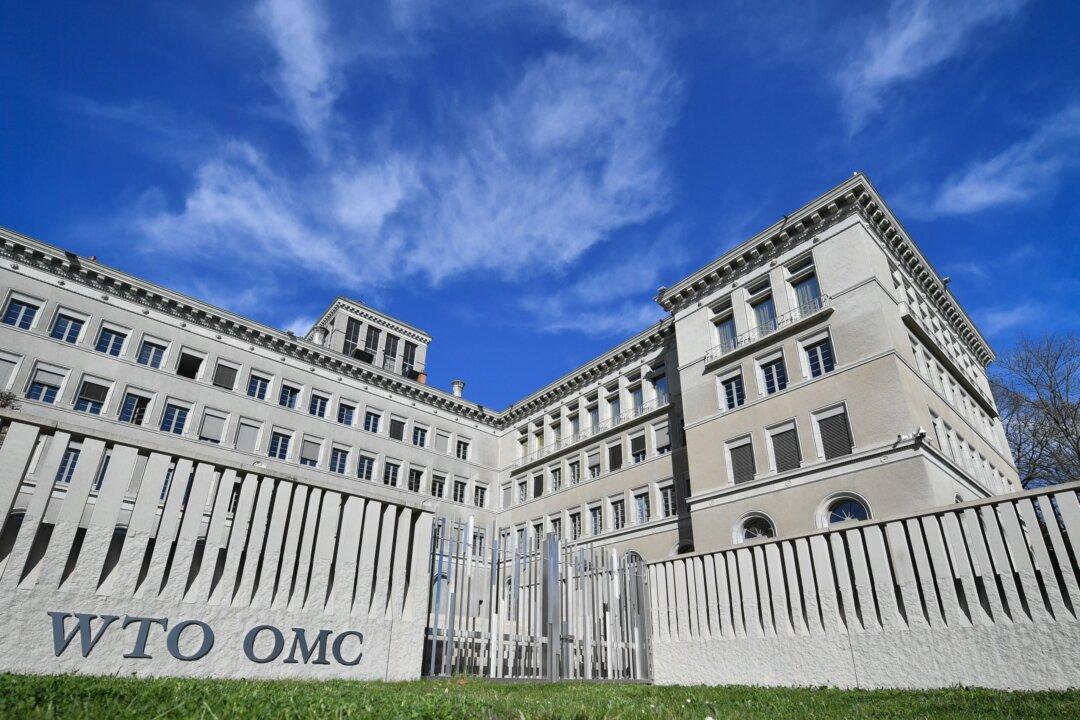GENEVA—The United States and China clashed on Oct. 21 at a World Trade Organization (WTO) meeting with a U.S. envoy accusing Beijing of using the WTO to pursue “non-market” policies.
U.S. President Donald Trump has erected a tariff wall against foreign imports of steel and aluminum, though the European Union, Canada, Australia, and several other countries have either permanent exemptions or postponed tariffs due to ongoing trade negotiations.





